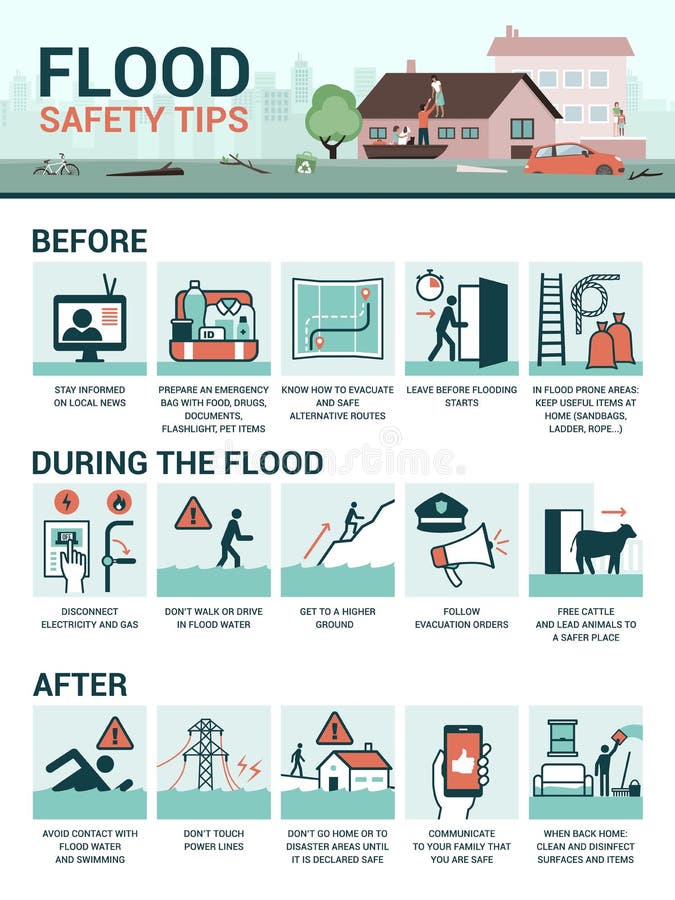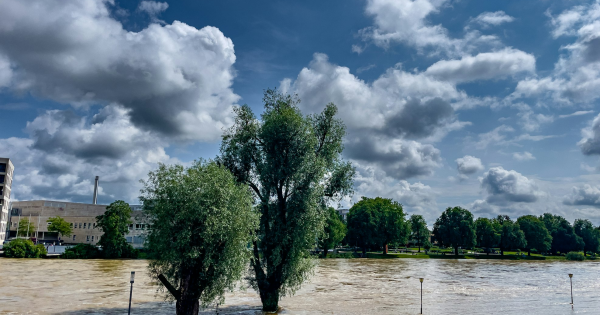Flash Flood Emergency Preparedness: Protecting Yourself And Your Family

Table of Contents
Understanding Flash Flood Risks
Flash floods are a rapid and sudden rise in water levels, often with little to no warning. Understanding the risks is the first step towards effective flash flood emergency preparedness.
Identifying High-Risk Areas
Learning to recognize areas prone to flash flooding is vital. High-risk areas include:
- Low-lying regions: Areas situated in valleys or depressions are particularly vulnerable to accumulating floodwaters.
- Canyons and gorges: The narrow confines of canyons can channel immense volumes of water, leading to rapid and intense flooding.
- Areas near rivers and streams: Proximity to waterways significantly increases the risk of flash flooding, especially during periods of heavy rainfall.
- Urban areas with inadequate drainage: Poor drainage systems in cities can exacerbate flooding during heavy downpours.
Utilize online flood maps and resources such as those provided by the National Weather Service (in the US) or your country's equivalent meteorological agency. Familiarize yourself with historical flood data for your region to understand past flood events and identify potential risks. Pay close attention to weather alerts and warnings issued by official sources. These warnings are your early warning system for impending flash floods.
Recognizing Flash Flood Warning Signs
Recognizing the signs of an approaching flash flood can be life-saving. Be alert for:
- Rapidly rising water levels: A sudden and dramatic increase in water depth in rivers, streams, or normally dry areas.
- Sudden increase in water flow: A noticeable surge in the speed and volume of water in waterways.
- Heavy rainfall in a short period: Intense rainfall, especially in a short duration, is a major trigger for flash floods.
- Mud and debris flowing in waterways: The presence of mud and debris indicates significant water flow and potential danger.
- Changes in water color or unusual sounds: A change in water color or unusual gurgling or roaring sounds can signal rising water levels.
Creating a Family Emergency Plan
A well-defined family emergency plan is the cornerstone of effective flash flood emergency preparedness.
Developing an Evacuation Route
Identify multiple escape routes from your home and neighborhood. Knowing alternative routes is crucial in case your primary route is blocked by floodwaters.
- Multiple escape routes: Plan at least two different routes to higher ground.
- Designated meeting point: Choose a safe meeting point outside the flood zone where your family can reunite.
- Contact person: Designate a person outside the affected area who can serve as a contact point for family members.
Preparing an Emergency Kit
Assemble an emergency kit containing essential supplies for at least 72 hours. This kit should include:
- Water: 1 gallon per person per day
- Non-perishable food: Easy-to-prepare, non-perishable food items.
- First-aid kit: Include essential medications and first-aid supplies.
- Flashlight and batteries: Provide light and a means of communication.
- Radio (hand-crank or battery-powered): Stay updated on weather and emergency information.
- Whistle: Signal for help if necessary.
- Important documents: Copies of essential documents in waterproof bags.
- Medications: Include any necessary prescription medications.
Practicing Your Plan
Regularly review and practice your emergency plan with your family. This familiarity will help everyone react calmly and efficiently during a real emergency. Conduct drills simulating various scenarios, such as evacuating your home and assembling at your designated meeting point.
Protecting Your Home and Property
Taking preventative measures can significantly reduce the damage caused by flash floods.
Home Improvement for Flood Protection
Consider making home improvements to enhance flood protection:
- Elevate electrical outlets and appliances: Protect them from floodwaters.
- Install flood barriers: Flood barriers can help contain floodwaters entering your home.
- Sump pump system: A sump pump can help remove water that accumulates in your basement.
- Clean gutters and downspouts: Regularly cleaning these will prevent water buildup.
- Reinforce the foundation: Reinforce the foundation to withstand the pressure of floodwaters.
- Consult a professional: Consult a professional for home floodproofing advice.
Securing Valuable Possessions
Move valuable items and electronics to higher ground. Store important documents in waterproof containers.
Staying Safe During a Flash Flood
Your actions during a flash flood are critical to your safety.
Evacuate Immediately
If ordered to evacuate, do so immediately. Never attempt to drive through floodwaters – turn around, don’t drown. Stay informed through official channels like NOAA weather radio or your local emergency services.
If Trapped
If trapped by a flash flood, seek higher ground immediately and contact emergency services if possible.
Conclusion
Flash flood emergency preparedness is not just about survival; it's about protecting your family and your peace of mind. By understanding the risks, creating a solid plan, and taking preventative measures, you can significantly reduce the impact of a flash flood. Remember, preparedness is your best defense. Don't wait for a disaster to strike; start planning your family's flash flood emergency preparedness strategy today. Invest time in learning about your local risks and building a comprehensive flash flood emergency plan. Your safety depends on it.

Featured Posts
-
 Porsche Koezuti Autok Legendas F1 Motorok A Volan Moegoett
May 25, 2025
Porsche Koezuti Autok Legendas F1 Motorok A Volan Moegoett
May 25, 2025 -
 Forecasting Apple Stock Aapl Price Important Levels To Consider
May 25, 2025
Forecasting Apple Stock Aapl Price Important Levels To Consider
May 25, 2025 -
 Miami Valley Flood Warning Current Conditions And Safety Advice
May 25, 2025
Miami Valley Flood Warning Current Conditions And Safety Advice
May 25, 2025 -
 Real Madrid In Doert Oyuncusu Hakkinda Uefa Sorusturmasi Basladi
May 25, 2025
Real Madrid In Doert Oyuncusu Hakkinda Uefa Sorusturmasi Basladi
May 25, 2025 -
 Ferrari 296 Speciale Novo Motor Hibrido De 880 Cv
May 25, 2025
Ferrari 296 Speciale Novo Motor Hibrido De 880 Cv
May 25, 2025
